Reply To:
Name - Reply Comment
Last Updated : 2024-04-19 22:36:00
Following long periods of discussions, where there were disparities, the Government of Sri Lanka (GOSL) has shown some consistency in the build up to the ban on using disposable polythene.(The law will be effective from September). This decision will help minimize environmental issues caused by polythene usage.
 It’s also fitting to note that the Central Environment Authority (CEA) has used all its tricks to promulgate the ban on polythene and the country’s law governing its usage.
It’s also fitting to note that the Central Environment Authority (CEA) has used all its tricks to promulgate the ban on polythene and the country’s law governing its usage.
Sri Lankan President Maithripala Sirisena, in his capacity as the Minister of Mahaweli Development and Environment, has proposed the implementing of a set of short, mediumand long term measures to minimize the use of polythene in Sri Lanka.
The measures recommended by the committee of intellectuals appointed to study the polythene issue received the approval of the Cabinet.
Prohibition of polythene use for decorations at all events.
Implementation the prevailing regulations for the prohibition of, use, sale and production of polythene equals or less than 20 microns.
Allowing the use of polythene less than 20 microns for essential activities only on the approval of Central Environmental Authority
Prohibition of sale, importation and production of lunch sheets.
Banning of sale, importation and production of containers, plates, cups and spoons.
Prohibition of the sale of processed or cooked meals packed in polythene containers.
Promotion of providing paper, cloth or reed bags or biologically degradable and environmental friendly plastics for customers when purchasing items.
Prohibition of burning polythene and plastic in open places.
Introduction and promotion of biologically degradable polythene and plastics.
Imposing of 15% CESS during the importation of plastic raw material and related products and providing 5% out of that to the CEA to manage polythene and plastic waste.
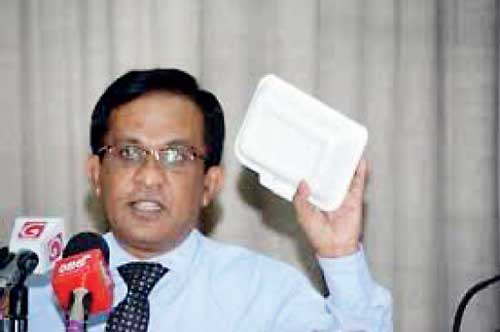
Hemantha Withanage
Centre for Environmental Justice Executive Director Hemantha Withanage revealed to the Dailymirror.lk that he was one of the committee members of the Eminent Panel appointed to study polythene use. “I was in fact affirmative on this regard and in a position to ban even plastic bottles which haven’t come under the new regulatory process. But I am glad that the law has been enforced after quite a few attempts in the past,” he said. Withanage proposed that glass bottles could be made renewable as the best alternative for the use of plastic bottles. He recommended the use of oil papers, wax paper bags and items made of sugarcane as the substitutes for polythene and plastic products.
“I should mention that many people who are in support of banning polythene and are waiting to adapt 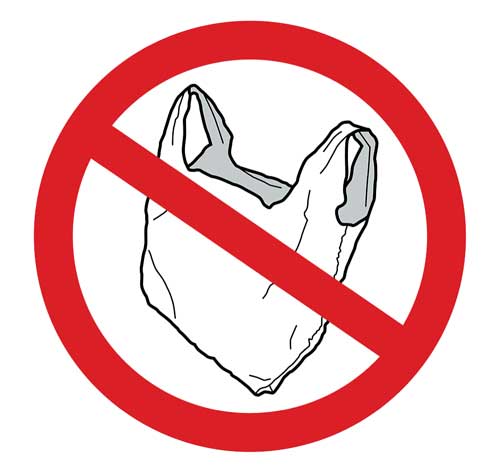 themselves with the use of items made of materials harmless to nature. When this issue came under the spotlight in 1995, it was extremely difficult for the people to get used to it. But after more than 20 years, if anybody says that it’s still inconvenient to get used to it, that is actually ridiculous. If countries like Rwanda, Morocco, Kenya and most of the European countries can totally ban the use of polythene, why are we incapable of doing it? Let’s do it for the sake of all Sri Lankans,” he pointed out. He said that the use of polythene should have been nipped in the bud. Therefore, the people of Sri Lanka should make use of this opportunity to do away with the use of polythene and get used to other alternatives. He underscored that Sri Lanka is ranked 5th in the world with regard to disposing garbage in the sea. He also requested the general public to join hands to support this new program and strive to totally eliminate polythene use from Sri Lanka.
themselves with the use of items made of materials harmless to nature. When this issue came under the spotlight in 1995, it was extremely difficult for the people to get used to it. But after more than 20 years, if anybody says that it’s still inconvenient to get used to it, that is actually ridiculous. If countries like Rwanda, Morocco, Kenya and most of the European countries can totally ban the use of polythene, why are we incapable of doing it? Let’s do it for the sake of all Sri Lankans,” he pointed out. He said that the use of polythene should have been nipped in the bud. Therefore, the people of Sri Lanka should make use of this opportunity to do away with the use of polythene and get used to other alternatives. He underscored that Sri Lanka is ranked 5th in the world with regard to disposing garbage in the sea. He also requested the general public to join hands to support this new program and strive to totally eliminate polythene use from Sri Lanka.
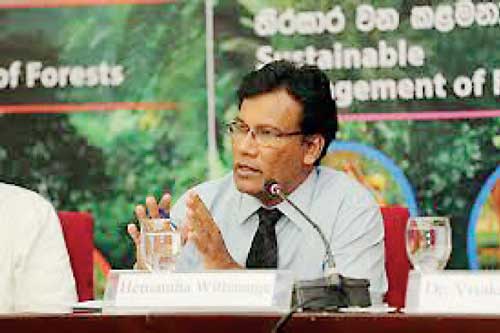 Ajith Weerasundara
Ajith Weerasundara
Nevertheless, CEA Waste Management Director Ajith Weerasundara said that they would grant concessions regarding Taxes and VAT during the importation of biodegradable raw material and manufacturing machinery.
“We are in a firm position as to put this law into effect irrespective of any circumstances. Central Environment Authority (CEA) as a responsible branch aspires to conserve the environment. For that, we need the assistance and co-operation of the general public,” Weerasundara said. He mentioned that 10%-15% of polythene is inclusive in the total garbage collected daily and that one individual consumes 5kg of polythene per year which could exceed up to 7.2kg in the Western Province.
“We have discussed with the polythene manufacturing companies as to how they should face the music. We have recommended some of the products which are biodegradable. Some companies have supported our suggestions, but a few haven’t,” Weerasundara said.
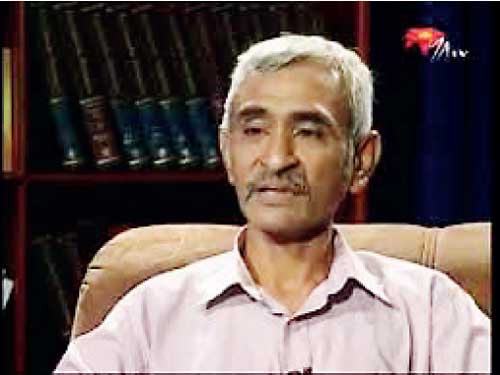 Jagath Gunawardena
Jagath Gunawardena
Senior Environment Lawyer Jagath Gunawardena when contacted, categorically stated that the problem wasn’t regarding the use of polythene, but the manner in which it was disposed of .
The lack of manageable procedures for the disposal of polythene has been the core issue during the past
“The lack of manageable procedures for the disposal of polythene has been the core issue during the past. I don’t say that the banning of polythene isn’t relevant. It’s absolutely essential and pertinent. The government should see that viable alternatives will be accommodated,” he opined. Gunawardena further emphasized that substitutes should be environmental friendly and come under the provision of Consumer Affairs Authority.
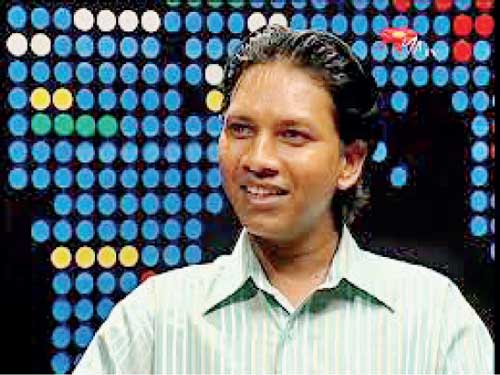 Sajeewa Chamikara
Sajeewa Chamikara
Environmentalist and Environmental Conservation Trust Director Sajeewa Chamikara told Dailymirror.lk that even though it was a bit late to implement the laws for the ban of polythene, the Government’s move was greatly commendable and applicable.
“I must say that the polythene issue has become a severe threat to Sri Lanka. Although, several implementations had been put into action, they weren’t as effective as they should have been.
Therefore, we should be thankful to this Government and the Central Environment Authority for their endeavours to implement the laws and the regulations to ban the use of polythene with effect from September 1,” Chamikara said.
He stressed that if we were to make this a reality, an apposite mechanism in the form of alternatives should be regulated to replace polythene. He pointed out that the government had regulated tax concessions for the importation and manufacturing of biodegradable raw material.
“The government should carry out subsidiary measures for the polythene manufacturers and the public before the law comes into effect to adapt themselves to the new alternatives.
When introducing alternative modes, the Government should ensure that their prices are affordable. The Government should take the pertinent steps to motivate the manufacturers of polythene. Otherwise, this will also be ineffective as it was evident for couple of times in the past,” he affirmed.
Chamikara further said that standards should be maintained and there should be legitimacy in enforcing the laws with respect to the ban on polythene, so as to not make it a
mere prohibition.
Unseen obstacles
In a brief interview with Dailymirror.lk , Sri Lanka Plastic Industry Association Chairman Sarath Wijesinghe, unearthed that the plastic industry in Sri Lanka would soon be in a tight spot due to the ban on polythene.
“The Government hasn’t provided enough time for the manufacturers to adjust themselves to alternative conditions. When there are more than thousand registered plastic factories at which there are more than 12,000 employees, the government hasn’t monitored its structures before banning polythene. It’s not fair,” Wijesinghe said.
He further said that more than 2 million lunch sheets are used daily in relative areas in Colombo. He went on to state that once the ban on polythene is effective, people will have to use items like boxes.
In order to wash them with water, it would require 5 litres of water per day.
He asked whether the Government could provide 5 litres of water per day only to Colombo? Therefore, they urged the Government to view this issue in a different perspective and take efficient action to see that the provisions proposed are fair.

Add comment
Comments will be edited (grammar, spelling and slang) and authorized at the discretion of Daily Mirror online. The website also has the right not to publish selected comments.
Reply To:
Name - Reply Comment
On March 26, a couple arriving from Thailand was arrested with 88 live animal
According to villagers from Naula-Moragolla out of 105 families 80 can afford
Is the situation in Sri Lanka so grim that locals harbour hope that they coul
A recent post on social media revealed that three purple-faced langurs near t